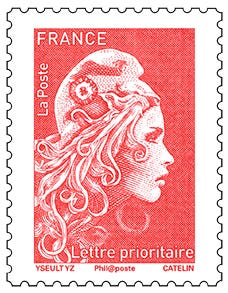A postal address in Canada mimics the American format:
Address Line 1
Address Line 2
City, Province
Postal Code.
Or :
John A McDonald
123 Parliament St
Ottawa, Ontario
L6H 3F5
The format in France begins with:
Street number and Name
Postcode + Locality
Destination nation notation
Or:
Capitaine Jean Luc PICARD
52 RUE DES FLEURS
33500 LIBOURNE
FRANCE
The reason we know this is because we’re trying to close down old accounts in Canada and provide forwarding addresses for mail. The challenge of course is figuring out how to put a French address into a Canadian form.
(Early Internet users will recall the days of trying to fit a six letter Canadian postal code into a five digit Zip Code box at American web sites.)
Added to this is another bit of French address practice: extra lines. Our mailing address for the next couple of months will also include the line:
Lieu-dit Le Fayard
Because, and I quote “we have just received our street address and Le Fayard was the former street address.” Wikipedia describes its use as follows:
Lieu-dit (French pronunciation: [ljø.di]; plural: lieux-dits) (literally said-location) is a French toponymic term for a small geographical area bearing a traditional name. The name usually refers to some characteristic of the place, its former use, a past event, etc. A lieu-dit may be uninhabited, which distinguishes it from an hameau (hamlet), which is inhabited. In Burgundy, the term climat is used interchangeably with lieu-dit.
I don’t know whether mail will actually arrive, but I’m hopeful!
It’s also worth noting that the French postal code “uses five-digit numeric postal codes, the first two digits representing the département in which the city is located.” Among English speakers at least it’s common to refer to your region by the two digit designation. For instance we’ll initially be living in the 24, but will also look for a home in 50, in Normandy.
All of this, and efforts this week to buy a birthday card in French, have reminded me that in Canada we really are isolated from much of the world. We really don’t know much about any other country, aside from our presumption that our diet of American media means that we understand them. (We don’t)
One of our goals in moving to France is to avoid becoming “Ex-pats.” The people who lived there for twenty years and haven’t bothered to learn the language, and who hunt down “English” restaurants for fish and chips nights.
If we’re living in France we want to be citizens of the country and live as the native French do. If that means learning new postal practices and telling people our phone number two digits at a time, that’s just fine.




